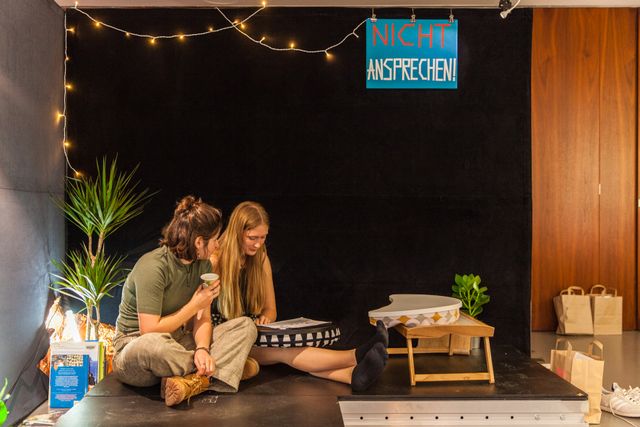Algorithmic Spaces
Evangelische Schule Berlin Zentrum with Thomas Meyer (T(o)uring-Schule)

The school of the future will change. It will have to meet new substantive and didactic requirements. However, the buildings, the sites of learning and teaching, will probably not change so quickly. How can the new aims be best realized in the old rooms? What must a learning space offer? What functions and areas should it provide in order to enable future-proof teaching? Nineteen students explored abstract bodies and objects in space in order to liberate themselves from conventional spatial patterns and their implied behavioral rules. Thus, they tried to rethink and reinvent those spaces. Throughout the process algorithms provided guidelines for behavior and action. With their help the students were sensitized and their perception for proportionalities in analog and digital architectures was sharpened.
The Evangelische Schule Berlin Zentrum follows the guiding principles of Agenda 21, a non-binding action plan of the United Nations with regard to sustainable development. This forms the basis for the building of its “House of Learning” and the continual development of its school program. It cooperates closely with the district administration and numerous non-school partners in and outside Berlin. With the teachers Mira Thomson and Jan Florian Sievert
Thomas Meyer works as a communication and exhibition designer in Berlin. He teaches interaction and game design in Düsseldorf and Bielefeld. In 2016, together with Kaori Kristensen, he founded the T(o)uring-Schule (T(o)uring School), which helps state schools assess the impact of digitalization and utilize it for educational purposes. He has been a co-organizer of the conference Diskurs.Medien.Bildung. (Discourse.Media.Education.) since 2017.